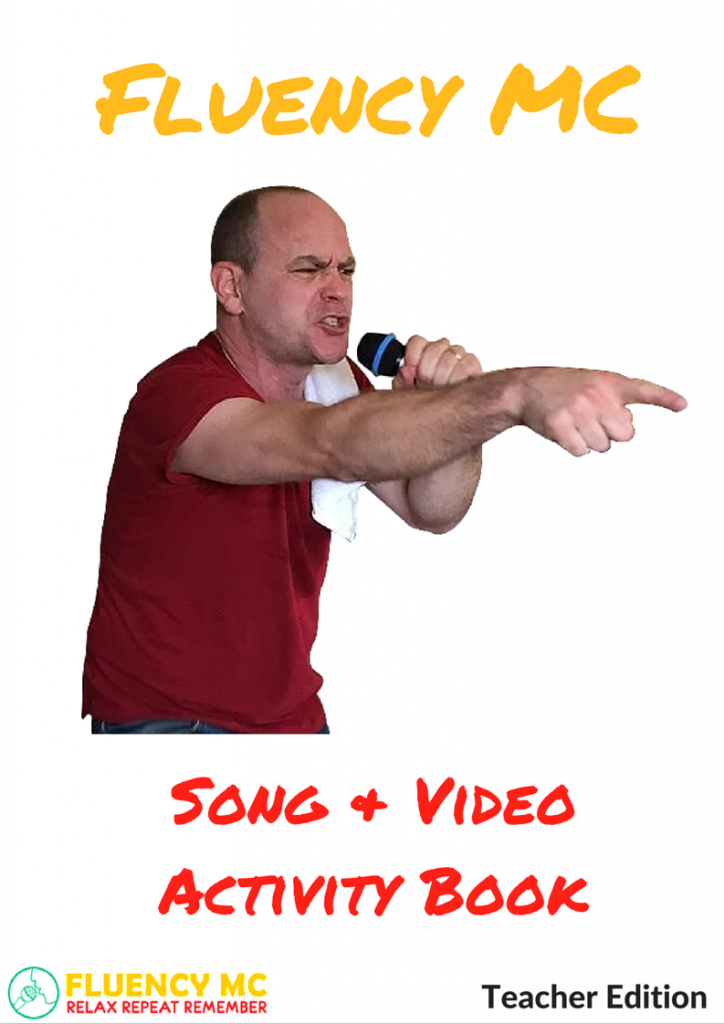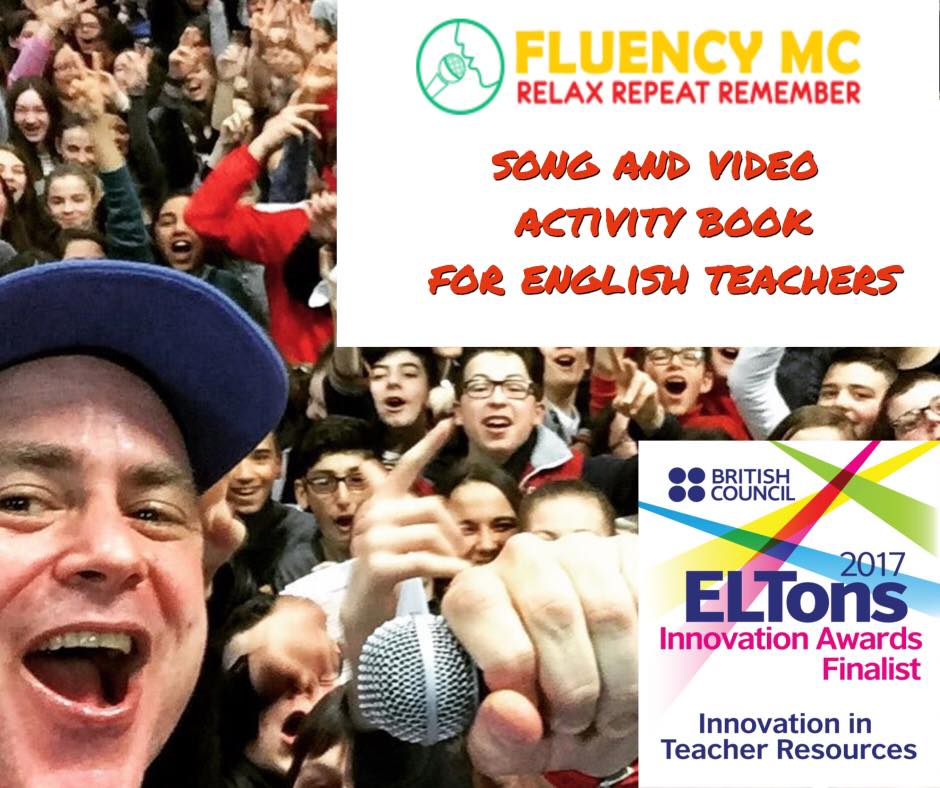Welcome to a new series where we feature great books for language teachers and language learners. This month we are featuring one of the most fun ways to learn English with the famous Fluency MC’s ELTON nominated book, The Fluency MC Song and Video Activity Book. Your language learners will find learning English vocabulary and grammar fun through hip hop and rap with Fluency MC. We caught up with hip hop sensation, Fluency MC, who shared these thoughts about his new book:
When students enjoy a song, they want to hear it again. When they’re familiar with it, they sing along. The desire for repetitive input is instinctive. The oral practice is natural. Rhythm and rhyme develop their pronunciation and listening skills. And rhythm and rhyme promote language retention: the vocabulary and grammar structures stick in their heads.
Moreover, song lyrics provide reading practice, heighten awareness of sound-spelling relationships, and stimulate discussion. Music videos accentuate the use of language and deepen its meaning. My friend and colleague, Chuck Sandy, recently had this to say about language learning: “Practice builds accuracy. Accuracy builds confidence. Confidence builds fluency.”
As English teachers, I believe our most important role is to promote this process. And I believe songs are the most powerful tools we have at our disposal. Pop songs are great in that they provide natural opportunities to practice authentic language. And you can connect this language (as well as topics or themes in the songs) to material in your syllabus. Selecting songs students know and like (or having them select songs) also motivates students and builds rapport in the classroom.However, teaching English with pop songs presents a number of challenges.
For one thing, pop songs are often difficult to understand and contain non-standard uses of English. Students may be curious about the language in the song (and it may be interesting to focus on it from a cultural perspective); but it won’t directly help them achieve their communicative goals. Also, certain lyrics or messages in the song may be inappropriate for the classroom.
Another issue with pop songs is that singers don’t always adhere to natural stress patterns. In addition to using poetic license with grammar and vocabulary, they often alter the sounds of words. This is fine for native English speakers, who have enough exposure to the words in oral discourse. But most English learners don’t have this advantage.
My struggle with these challenges led me to begin writing my own songs and making videos. The songs aim to enhance learners’ accuracy and fluency through contextualized practice with high-frequency functional language. The lyrics and hip hop beats follow the natural stress patterns of conversation, and the topics are popular with adolescents and adults from a variety of cultural backgrounds.
I recently created the Fluency MC Song and Video Activity Book to provide English teachers with materials for 12 of my most popular songs. The book contains lyrics, activity suggestions, 36 downloadable mp3 song files, and access to a private video area on my website. The materials are aimed at adolescent and adult English language learners at or above intermediate level. The book is re-printable for unlimited use by teachers who purchase it.
You can use the book to help your learners practice listening and pronunciation, develop vocabulary and grammar, and engage in conversation. Try doing a bit of a song each day for several days. Or build an entire lesson around it. You could use a song to introduce a particular function, grammar point, or discussion topic. Or you could use it for reinforcement or review. The aim is to facilitate activities with these materials. You don’t have to perform the songs yourself (unless you want to!)
We would like to thank Fluency MC for stopping by! Don’t forget to get your copy of Fluency MC’s ELTON nominated book, The Fluency MC Song and Video Activity Book, by clicking here.
Each week we scour the internet to find incredible books to highlight on our various social networks (@TESOL, @AmericanTESOL, and @ESLWebinars). Check out our past favorites here.
To learn more about integrating technology to support English language learners, attend our free Friday webinars.




